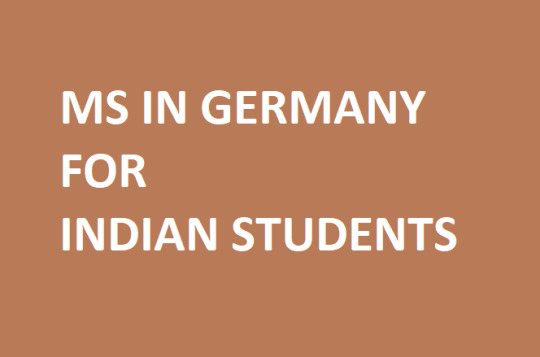#masters in germany
Text

Germany stands as one of the top destinations for international students seeking advanced education, particularly through Masters in Germany programs. Renowned for its academic excellence, vibrant cultural scene, and strong industrial base, Germany offers a plethora of opportunities for those pursuing postgraduate studies. Master’s in Germany programs encompass a wide range of disciplines, catering to diverse academic interests and career aspirations.
0 notes
Text

Completed Your B.Tech, looking for Free Education in Germany, Apply Oct 2024, and Get Free Counselling Now!
☏ 0586482330
Stanford Global Education Consultants
Address: Office No: C-03 Block Ground Floor, Sharjah Book Authority, Al Zahia, Sharjah UAE
Visit Us : https://stanfordglobaleducation.com/
#studyingermany#studymaster#studyabroad#freeeducationgermany#studyinukwithoutielts#studyinukfromindia#teessideuniversity#ravensbourneuniversity#universityofroehamton#coventryuniversity#angilaruskinuniversity#universityofgreenwich#demontfortuniversity#abroadeducation#AbroadStudy#abroadconsultancy#overseaseducation#overseaseducationconsultant#OverseasEducationUK#overseaseducationguidance#Stanford#stanfordstudyabroad#stanfordstudyabroadconsultancy
0 notes
Text

https://www.stanfordstudyabroad.in
Completed Your Bachelor Degree, Looking for Free Education in Germany, Apply Oct 2024, and Get Free Counselling Now!
☏ 07306585290
Find the perfect study abroad program to meet your educational goals
Visit Us: www.stanfordstudyabroad.in
Stanford Study Abroad Consultancy
Address: Office No : 1206, 2nd Floor, Phase-1 Hilite Business Park, Kozhikode, Kerala, India
#studyingermany#StudyMasters#StudyAbroad#freeeducationgermany#abroadeducation#AbroadStudy#abroadconsultancy#overseaseducation#overseaseducationconsultant#stanford#stanfordstudyabroad#stanfordstudyabroadconsultancy
#studyabroad#study overseas#overseaseducation#free education germany#study in germany#masters in germany
1 note
·
View note
Text

Unleash your potential by Studying in Germany! 🌍🎓
Immerse yourself in a world-class education system. From renowned universities to a diverse student community, Germany offers the perfect blend of academic excellence and personal growth. Embrace the opportunity to study in Germany. Get Consultancy from our Best Study Abroad consultants in Dubai for pursuing a Master's in Germany✨
0 notes
Text
Public Universities in Germany for Masters in Mechanical Engineering
Germany owns many top-ranking universities that provide quality education at a minimal cost. The country’s vibrant lifestyle, culture, and homely environment have made it a favorite study abroad in Germany destination for many students. Germany is known for technological advancements and innovations. Students from all over the globe reach here to pursue their education which gives them exceptional opportunities after their course studies.
OVERVIEW OF MASTERS IN MECHANICAL ENGINEERING IN GERMANY FOR INDIAN STUDENTS
Study abroad in Germany is the best study destination that provides outstanding education and a wide range of career opportunities after the study programs. Let us now take a look at the overview of Mechanical Engineering in Germany:
It is a master’s degree
The program Duration is 2 years
The course is available in both public and private universities.
The tuition fee charged by international students starts from INR 2, 50,000 to INR 30, 00,000.

WHY STUDY MS IN MECHANICAL ENGINEERING IN GERMANY?
Germany ranks as the third most sought-after study destination after US and UK. The following features of the program lure the students to pursue this course:
Popularity: there is a great number of courses with unique specializations that are offered by German Universities. But, the percentage of students opting for Engineering Disciplines amounts to 40%. Out of this, Mechanical Engineering tops the list of engineering courses.
Career Benefits: the country provides excellent prospects for research and learning for mechanical engineering graduates. The university maintains partnerships with renowned companies that provide students to do training and internships which add to their work experience.
Affordability: the students would be pleased to know that German universities provide international master’s degree courses at no-cost tuition fees. There are about 300 German Universities that do not charge any tuition fees.
Germany is the best option to study Master’s in Mechanical Engineering if you possess an undergraduate degree in the same discipline and are looking to take it to next level.
TOP UNIVERSITIES IN GERMANY FOR MS IN MECHANICAL ENGINEERING
As mentioned earlier that Germany is home to many renowned top-ranking universities. Some of the top universities that offer master’s in Mechanical Engineering are:
Technical University of Munich
Karlsruhe Institute of Technology
University of Stuttgart
RWTH Aachen University
Technical University of Braunschweig
Leibniz University of Hannover
ELIGIBILITY CRITERIA & ADMISSION REQUIREMENTS FOR MS IN MECHANICAL ENGINEERING IN GERMANY
Every University maintains different criteria for admission to the master’s program. Following are the eligibility criteria that are generally constant irrespective of the university you are applying to:
You must have a valid Bachelor’s degree in Mechanical Engineering or any equivalent field from a recognized university.
There is a cut-throat competition for admission to MS in Mechanical Engineering in German Universities. So, you must ensure that you have the required grades in your previous studies that make you stand out from the crowd.
Some universities ask you to produce an aptitude test score like GATE and GRE scores. You may be required to clear their entrance examinations for getting admission to the university.
Although most of the master’s courses are taught in English, some universities provide education in German medium. Therefore, it is better if you have done a German language course. Apart from this, you have to produce proof that you have cleared the IELTS exam or TOEFL exam with good grades.
Having a valid passport and a German Visa is a must to study at your dream destination. The application fee that is charged for Visa is around INR 6000. Other documents that need to be submitted are Health and Travel Insurance, a letter of admission, and a statement of purpose.
DOCUMENT REQUIREMENTS ELIGIBILITY FOR MS IN MECHANICAL ENGINEERING IN GERMANY
International students wishing to study in Germany have to produce the following documents for admission –
Certificates showing their Educational qualifications
Letter of Motivation or Statement of Purpose
Latest Curriculum Vitae
Language Proficiency Proof- IELTS or TOEFL
German Language Proficiency
Letters of Recommendation
Germany Blocked Account
Photocopy of the Passport
Latest passport-size photographs
MS IN MECHANICAL ENGINEERING IN GERMANY FEES
The tuition fees at public universities are usually very low. Students who are going to study at a private university have to pay more than a public university. But then also it is quite affordable to study at a German University and you can get a detailed requirements from german education consultant. The tuition fees for a master in mechanical engineering in Germany start from INR 250000 per annum at public universities and annual tuition fees of 900000 INR to 3500000 INR at other colleges. The student has to spend around 40,000 INR to 850,000 INR per annum on accommodation charges, food expenses, travel expenses, etc.
#Masters in germany#mechanical engineering in germany#top university in germany for masters#study in germany#study abroad in germany
0 notes
Text
Why Germany is the best place for a master’s Education?

Embarking on a journey for a master's degree is a significant decision, and choosing the right destination can shape not just your academic experience but your entire career trajectory. Germany, with its world-class education system and dynamic cultural landscape, stands out as the ultimate destination for those seeking an unparalleled master's education. Here are compelling reasons why Germany reigns supreme in the realm of advanced academic pursuits.
For More Info Visit: MBA in Germany for Indian students
1. Acclaimed Universities and Research Powerhouses:
Germany is home to some of the world's top-ranking universities and research institutions. From the historic Heidelberg University to the innovative Technical University of Munich, the country's commitment to academic excellence is evident. Pursuing a master's degree in Germany means tapping into a vast pool of knowledge, cutting-edge research opportunities, and learning from the best minds in your field.
2. Diverse Range of Master's Programs:
Whether your passion lies in engineering, business, the humanities, or any other field, Germany offers a diverse range of master's programs to suit every academic interest. The extensive selection of programs is designed to cater to the evolving needs of industries, ensuring that graduates are equipped with the latest skills and knowledge required for success in their respective fields.
For More Info Visit: MS in Management in Germany
3. Affordable Tuition Fees and Living Costs:
Contrary to common perception, pursuing a master's degree in Germany can be surprisingly affordable. Many public universities offer low or no tuition fees, enabling students to access high-quality education without accumulating massive debts. Additionally, the cost of living in Germany is reasonable, especially when compared to other European countries. With efficient public transportation systems and various student discounts, you can experience a high standard of living without breaking the bank.
4. Robust Job Market and Post-Graduation Opportunities:
Germany's thriving economy and robust job market make it an ideal destination for post-graduation opportunities. Completing your master's degree in Germany opens doors to a wealth of career prospects, with many industries actively seeking international talent. The country's emphasis on practical, hands-on learning means that you graduate not just with theoretical knowledge but with the skills employers are looking for.
5. Multicultural Environment and Quality of Life:
Germany's welcoming and multicultural environment makes it an attractive place for international students. Studying in a diverse setting exposes you to different perspectives, fosters cross-cultural understanding, and prepares you for a globalized world. Moreover, Germany consistently ranks high in terms of quality of life, offering a blend of rich cultural experiences, efficient public services, and a strong commitment to sustainability and environmental consciousness.
6. Language Options:
While many master's programs in Germany are offered in English, there's also an opportunity to learn or improve your German language skills. Proficiency in German can significantly enhance your overall experience, both academically and professionally, as it opens doors to a broader range of opportunities and allows you to better integrate into German society.
For More Info Visit: MS in industrial engineering in Germany
7. Vibrant Cultural Scene and Travel Opportunities:
Beyond academia, Germany boasts a vibrant cultural scene with numerous museums, theaters, festivals, and historical landmarks. The country's central European location makes it easy to travel and explore neighboring countries, adding a layer of adventure and cultural enrichment to your master's education.
For More Info Visit: Study Abroad Consultant in Delhi
In conclusion, Germany's allure for master's education is multifaceted. From prestigious universities to a diverse range of programs, affordability, and a thriving job market, the country provides an exceptional platform for academic and personal growth. Consider Germany not just as a destination for your master's education but as a launchpad for a successful and fulfilling career on the global stage.
0 notes
Text
A Comprehensive Guide to Studying in Germany for Free

Introduction
Studying abroad can be a life-changing experience, offering students an opportunity to broaden their horizons and gain a global perspective. Germany, known for its prestigious education system, is a popular choice for international students seeking quality education without the burden of high tuition fees. In this comprehensive guide, we will delve into the various aspects of studying in Germany for free, providing valuable information and insights that will help you unlock the endless opportunities that await.
Why study in Germany?
Germany is renowned for its high academic standards, excellent research facilities, and strong emphasis on practical learning. The country's universities consistently rank among the top in global university rankings, offering a wide range of programs across various disciplines. By studying in Germany, you will have access to world-class education and the opportunity to learn from distinguished professors and experts in your field of study.
Benefits of studying in Germany for free
One of the most significant advantages of study abroad in Germany is the absence of tuition fees for international students at public universities. This means that you can obtain a quality education without incurring substantial financial debt. The German government recognizes the importance of education and ensures that students, regardless of their nationality, have equal access to academic opportunities. Additionally, studying in Germany can enhance your career prospects, as the country's strong economy provides ample job opportunities for graduates.
Important factors to consider
Before embarking on your journey to study in Germany, there are several important factors to consider. Firstly, it is essential to evaluate your academic and personal goals to ensure that Germany aligns with your aspirations. Researching the German education system, understanding the admission requirements, and familiarising yourself with the living expenses and culture of the country are all crucial steps in making an informed decision. By considering these factors, you can pave the way for a successful and fulfilling academic journey in Germany.
Understanding the German Education System
Overview of the education system in Germany
The German education system is highly regarded worldwide for its strong focus on academic excellence and practical training. It is a decentralised system, meaning that each federal state in Germany is responsible for the administration of its education system. The system is divided into various stages, including primary education, secondary education, and higher education.
Different types of higher education institutions
Germany offers a diverse range of higher education institutions, including universities, technical universities, and universities of applied sciences. Each type of institution has its own strengths and focuses on specific fields of study. Universities are known for their research-oriented programs, while technical universities excel in engineering and technology-related disciplines. Universities of applied sciences, on the other hand, emphasise practical skills and offer programs for Bachelor's degree in Germany or MS in Germany designed to meet the demands of the job market.
Accreditation and quality assurance
The German higher education system places a strong emphasis on quality assurance to ensure that universities meet rigorous standards. The accreditation process, carried out by independent agencies, evaluates universities based on factors such as teaching quality, research output, and infrastructure. This ensures that students receive a high-quality education and that their degrees are recognized both nationally and internationally.
Eligibility and Entry Requirements
Criteria for admission
To be eligible for admission to a German university, you must meet certain criteria. These criteria vary depending on the university and the program whether you wish to pursue a Bachelor's or Master’s degree in Germany.. Generally, universities require that applicants hold a recognized secondary school diploma or an equivalent qualification. In addition to academic qualifications, universities may also consider other factors such as extracurricular activities or work experience.
Language proficiency requirements
Since German is the primary language of instruction in most undergraduate programs, it is essential to have a good command of the language. Universities often require applicants to provide proof of their language proficiency through internationally recognized language tests such as the TestDaF or the DSH. However, there are also programs taught in English, especially at the postgraduate level, for which English proficiency tests such as the TOEFL or IELTS may be required.
Recognized qualifications
German universities recognize a wide range of international qualifications. However, it is important to verify whether your qualification is recognized by the university you wish to apply to. The International Baccalaureate (IB), A-Levels, and the American High School Diploma are generally accepted. It is advisable to consult with the university's admissions office or refer to their website for specific information regarding recognized qualifications.
Submitting applications
Once you have identified the university and program you wish to apply for, you will need to submit your application. Most universities in Germany have an online application portal where you can upload your documents and complete the application process. It is crucial to carefully follow the instructions provided by the university and ensure that you submit all the required documents within the specified deadline.
The Cost of Studying in Germany
While tuition fees are generally not applicable for international students at public universities in Germany, there are still costs to consider when studying in the country. Understanding these costs will help you plan your budget accordingly and ensure a comfortable living experience during your time as a student.
Tuition fees and exemptions for international students
Public universities in Germany do not charge tuition fees for international students, regardless of their nationality. This is a significant advantage for students seeking a high-quality education without the financial burden of tuition fees. However, it is important to note that some federal states in Germany have introduced tuition fees for non-EU/EEA students pursuing master's degree programs.
Living expenses in different cities
While tuition fees may be waived, it is essential to consider the cost of living in Germany. The cost of living varies depending on the city you choose to study in. Major cities such as Berlin, Munich, and Hamburg generally have higher living expenses compared to smaller towns or cities. Rent, transportation, food, and personal expenses are the main components of living costs. On average, students should budget approximately €800 to €1,200 per month to cover these expenses.
Scholarships in Germany and financial aid options
Despite the relatively low cost of studying in Germany, scholarships and financial aid options can further alleviate financial constraints. There are various scholarships available specifically for international students, funded by both the German government and private organisations. These scholarships are awarded based on academic merit, financial need, or specific criteria set by the funding organisation. Additionally, some universities offer their own scholarships, so it is worth researching the scholarship opportunities that are relevant to your field of study.
Choosing the Right University and Program
Researching universities and their rankings
When choosing a university in Germany, it is crucial to conduct thorough research and consider various factors such as the university's reputation, program offerings, research opportunities, and facilities. University rankings can serve as a helpful tool in evaluating the quality and reputation of different institutions. Prominent international rankings such as the QS World University Rankings and the Times Higher Education World University Rankings provide insights into the performance of German universities.
Identifying suitable programs
Once you have narrowed down your university options, it is important to carefully examine the program offerings. Consider factors such as the curriculum, specialisation options, research opportunities, and industry connections. Assess your own academic and career goals and determine how well a program aligns with your aspirations. It is advisable to review the program's syllabus, read student testimonials, and reach out to current students or alumni for their perspectives.
Considering the location and campus facilities
In addition to the university and program, the location and campus facilities should also be taken into account. Consider whether you prefer a vibrant city or a quieter town, and evaluate factors such as accessibility, cultural opportunities, and student life. Additionally, examine the facilities provided by the university, such as libraries, laboratories, sports facilities, and student support services. A conducive learning environment and adequate resources can greatly enhance your academic experience.
Preparing the Application:
Gathering Required Documents: To start your journey to Germany, collect essential documents such as transcripts, certificates, and identification papers.
Writing a Compelling Motivation Letter: Craft a persuasive motivation letter that highlights your passion for your chosen course and why you want to study in Germany.
Preparing for Interviews: Some programs may require interviews; prepare by researching common questions and practising your responses.
Application Deadlines and Process:
Important Dates to Remember: Stay on top of application deadlines and ensure your application is submitted on time.
Submitting Applications Online or by Mail: Learn how to submit your applications either online or by traditional mail, adhering to the university's guidelines.
Tracking the Application Status: Understand how to monitor the progress of your application and stay informed.
Visa and Residence Permit:
Understanding the Visa Requirements: Get acquainted with the visa requirements for international students, which may vary based on your home country.
Applying for a Student Visa: Follow the steps for applying for a student visa to study in Germany.
Extending the Residence Permit: Learn how to extend your residence permit if your course duration exceeds your initial visa.
Health Insurance and Healthcare:
Mandatory Health Insurance: Understand the mandatory health insurance for students and the types of coverage available.
Accessing Healthcare Facilities: Discover how to access healthcare facilities in Germany and your rights as a student.
Housing Options for Students:
On-Campus Accommodation: Explore on-campus housing options and the application process.
Off-Campus Housing: Learn about off-campus housing alternatives and tips for searching for apartments or shared rentals.
Arriving in Germany:
Organising Travel Arrangements: Prepare for your journey to Germany, including flights, transportation, and accommodation upon arrival.
Settling In and Orientation Programs: Find out about orientation programs to help you adapt to your new surroundings and academic life.
Registering at Local Authorities: Understand the importance of registering with local authorities upon arrival.
Academic Life in Germany:
University Structure and Courses: Gain insights into the structure of German universities and the diverse range of courses available.
Crediting and Grading Systems: Understand the grading system and how your academic progress is evaluated.
Student Support Services: Explore the various support services available to students.
Learning the German Language:
Importance of German Language Skills: Discover why learning the German language can enhance your experience in Germany.
Language Courses and Resources: Find resources and courses to help you develop your language skills.
Language Proficiency Exams: Learn about language proficiency exams and their importance.
Cultural Integration and Social Life:
Adapting to German Culture: Tips for adapting to German culture and customs.
Student Organizations and Clubs: Get involved in student organisations and clubs to enrich your social life.
Exploring the Local Community: Explore the local community and make the most of your time in Germany.
Part-Time Jobs and Internships:
Regulations for International Students: Understand the regulations governing part-time work and internships for international students.
Finding Part-Time Jobs: Tips for finding part-time jobs or internships to support your studies.
Balancing Work and Studies: Learn how to balance your work commitments with your academic responsibilities.
Health and Well-Being Support:
Mental Health Resources: Access mental health resources and support services available to students.
Counselling Services: Learn about counselling services to help you navigate the challenges of student life.
Sports and Recreational Activities: Stay active and engaged through sports and recreational activities on campus.
Opportunities for Research and Innovation:
Research Opportunities: Explore research opportunities at German universities and potential collaborations.
Scientific Conferences: Participate in scientific conferences and showcase your work.
Post-Graduation Options:
Employment Prospects: Discover employment prospects for international students in Germany.
Extending the Residence Permit: Learn how to extend your residence permit for job hunting after graduation.
Further Study or Returning Home: Consider your options for further study or returning to your home country after graduation.
Frequently Asked Questions: FAQs
Can I study in Germany for free, even as an international student?
Yes, Germany offers tuition-free education at public universities for both domestic and international students. However, there might be nominal administrative fees, and some states may charge small semester contributions. Private universities in Germany do charge tuition fees, but they are generally lower compared to many other countries.
Do I need to be fluent in German to study in Germany?
It depends on the program and university. Many undergraduate programs are taught in German, so you would need to prove your German proficiency. However, there are an increasing number of English-taught programs, especially at the master's and doctoral levels. If you're applying to an English-taught program, you'll typically need to demonstrate English proficiency through tests like IELTS or TOEFL.
Are there any scholarships available for international students?
Yes, there are various scholarships available for international students in Germany. Some are offered by the German government, while others are provided by universities, foundations, and organisations. The most well-known scholarship for international students is the DAAD (German Academic Exchange Service) scholarship.
What are the living expenses like in Germany?
Living expenses in Germany can vary depending on your location and lifestyle. On average, you should budget for rent, food, transportation, and other expenses. It's estimated that you may need around 800 to 1,000 euros per month to cover your living expenses.
How long does it take to process a student visa?
The processing time for a German student visa can vary depending on your home country and the time of year. It's advisable to apply at least three months before your intended departure date to allow for ample processing time. Some visas may be processed faster, but it's always best to apply early.
Can international students work part-time while studying in Germany?
Yes, international students in Germany are allowed to work part-time during their studies. You can typically work up to 120 full days or 240 half days per year without needing a work permit. However, it's essential to check the specific regulations for your visa and university.
Will I be able to stay in Germany after graduation for employment?
Yes, Germany offers a "job-seeking visa" or a "residence permit for job search" to international graduates. This visa allows you to stay in Germany for up to 18 months after graduation to seek employment. If you find a job related to your field of study during this time, you can then apply for a work visa or residence permit.
Are there any opportunities for research and innovation in Germany?
Germany is known for its strong emphasis on research and innovation. German universities and research institutions are world-renowned, and there are various opportunities for international students to engage in research projects and collaborations. Additionally, Germany has a thriving tech and innovation ecosystem, making it a great place for those interested in these fields.
Conclusion:
Studying in Germany offers an enriching educational experience and opens doors to various opportunities. With this comprehensive guide, you're well-prepared to embark on your educational journey in Germany, making the most of your time as an international student. Good luck!
#study in germany#germany study visa#masters in germany#bachelor in germany#german language course#german language training#german language#ms in germany
0 notes
Text

Do you wish to excel in your career and give your CV, the acceptance it needs? unlock a world of unparalleled opportunities with Yes Germany, one of the leading consultants for pursuing masters in germany in BTM Bangalore
#study in germany#masters in germany#germany#studyabroad#overses education#german consultant#postgraduate#bachelors degree
1 note
·
View note
Text

Don't miss out on the chance to excel in your career. "Yes Germany" helps you achieve your dream to pursue a Master's Degree from Germany!
0 notes
Text

Study MBA in Germany
Do you want to become a leader? Join our MBA programme & get equipped with right skills within one year. Start your studies any time you’d like, do not wait!
UE has 4 intakes for MBA – January, March, June and September.
MBA programmes are fully state-accredited in Germany + have international AACSB accreditation.
Apply now for June/September 2023 intakes
Study MBA in Germany
1 note
·
View note
Text
Study in Germany with low tuition fee
Study in Germany with or without fee.
Study in Germany with a low tuition fee, Bachelors and Masters programs.
http://www.abroadstudiesedu.com
In Germany, higher education is primarily provided by public universities and institutions, which are known for their excellent academic standards and tuition-free or low-cost education. However, there are also some private institutions in Germany that offer study programs to international…

View On WordPress
0 notes
Text
ms in germany for indian students

Get more information of ms in germany for indian students
0 notes
Text

Completed Your B. Tech, looking for Free Education in Germany, Apply Oct 2024, and Get Free Counselling Now!
☏ 07306585290
Find the perfect study abroad program to meet your educational goals
Visit Us: www.stanfordstudyabroad.in
Stanford Study Abroad Consultancy
Address: Office No : 1206, 2nd Floor, Phase-1 Hilite Business Park, Kozhikode, Kerala, India
#studyingermany#StudyMasters#StudyAbroad#freeeducationgermany#abroadeducation#AbroadStudy#abroadconsultancy#overseaseducation#overseaseducationconsultant#stanford#stanfordstudyabroad#stanfordstudyabroadconsultancy
#study in germany#masters in germany#free education germany#consultingservices#study overseas#overseaseducation
1 note
·
View note
Text

The best German Education Consultant in Andheri provides you with the best study in Germany Consultancy.
They provide you with the best advice on which universities and courses to choose, and guide you through the entire application process. Whether you're looking for a MS in Germany or MBA in Germany they will help you in ensuring a successful future.
Go and Book a Free Consultation Now!
0 notes
Text
How Long Does It Take to Learn German Language
Everyone has different reasons to learn a new language. With over 200 million native speakers around the world, German is a popular and highly rewarding option.

However, how long does it take to learn German? After all, when you embark on the German travels, you may have a set of goals in the back of your mind. It is important to know how long it’ll be to accomplish them.
For English native speakers, German is among the languages that is easiest to master Of course, how fast you master it will depend on a number of factors:
The amount of effort you’re willing make
How often do you practice?
Find a suitable method of learning or method of use
How Long Does it Take to learn A1, the Beginner Level, Intermediate Level, and Advanced Level?
Let’s get straight to the main point. Although it’s difficult to know for certain but we’ve attempted to give an estimate of the time it will take to achieve the beginner, intermediate and advanced stage of German.
Beginning Level
A new speaker of a language should be able to introduce themselves, recognize simple and slow spoken languages, as well as also ask simple questions (probably making a few mistakes in the process)
To be capable of greeting people.
To submit a request for a feast in the café. Ace an order for a meal in the restaurant.
To know when someone is talking to you in a slow and deliberate manner.
Some basic reading abilities.
Intermediate Level
When you’ve reached the intermediate stage at which point you’ll be able comprehend everyday conversations (if it’s spoken clearly) even if must ask questions from time to time to keep on top of the latest developments. The intermediate level also allows the user to…
Listen to videos and read news without having any difficulty comprehending the major aspects.
Ask for directions and follow the instructions.
Have simple interactions with the locals on familiar topics.
Advanced Level
If you’re looking to attain fluency, this is the goal you’re trying to achieve advanced language proficiency. If you reach the level you’ve reached, you’ll be in a position to navigate every circumstance that might be encountered in your daily routine or while on the road.
Have deep discussions with native German speakers.
Watch movies with no subtitles.
Read the books you want to read in German without difficulty
Elements that decide how long it takes to learn German.
Your Language Learning ExperiencesDo you already speak a foreign language? Did you grow up bilingual? If yes, you could get ahead of yourself as you study German.
Learning german language for beginners is more about the elements that comprise the language and the distinctive language it has. If you’ve had experience studying foreign grammar, retaining words, listening to various sounds, and examining the different letters, your brain will know exactly what you can expect to encounter when you are faced with a language that isn’t your own.
The German Language ItselfGerman might look “Greek” to you, however, many languages are more alike than distinct. The ability to learn a language like your native language could make it easier to learn the grammar, pronunciation, alphabet and vocabulary.
Your Learning MethodsThe way you learn German is also a significant aspect in how quickly you master. If you learning of German is restricted to a classroom situation, then it’s likely to take more time to master.
The Time You Dedicate to LearningHow long you will take to master German is dependent on the amount of time you intend to devote to studying it. It could be either weekly, daily or monthly.
Your Attitude and MotivationBeing motivated is the main reason that people achieve successful language learning, but it’s also the most important reason for people to quit.
Remember why you wish to study German to make your life better and all the good that comes from learning it. This will help you keep your focus and, consequently increase the amount of learning process.
How long does it take to speak German Language?
It shouldn’t take long to become fluent in German. Actually, after 6-8 months of studying in intense courses (about twenty hours every week) you will be able to gain proficiency of your German language to navigate your daily life. It is possible to gain professional proficiency within a mere year!
German language prerequisites for international students to study in Germany
For the purpose of study in Germany to be eligible for German university, you must be able to prove that you are proficient in English and German sufficiently to be able to study in the respective language. This evidence must be provided by handing over an official certificate of language, except if you are a native speaker or have completed the English or German language program, of course getting to this point takes a lot of hard work. However, don’t worry about it that universities will not require you to communicate the same level as native speakers.
Find the best place to take a German Language Course in Delhi
It might be difficult to find the right instructor when you first start. Make sure to research all options and select the one that inspires you to learn German the best way possible. Based on the opportunities that are available depending on the opportunities available in your region It could be feasible to participate in a German retreat, participate in an informal Stammtisch (an informal German meeting group) or even participate of an on-line German spoken group. The process of learning German Language Course in Bangalore is in line with a trend that is becoming more popular not just for the sake of gaining an advantage in job applications or for higher education. The main reason for the rising interest in studying foreign languages lies in the wide exposure across the globe via social media, online intercultural programs as well as the opportunities for more education and work, Study Abroad in German Consultant is the best place for your quest of finding a good language school. YES Germany has more than a decade of experience in teaching German language and has state-of -the art facilities. Additionally, the students are offered classes according to their convenience in both online and offline modes, convenient timings, affordable fees and experienced and certified teacher. Don’t wait, simply call.
#German language course#learning german language#german language course in bangalore#study abroad consultant in bangalore#study in germany#masters in germany
0 notes